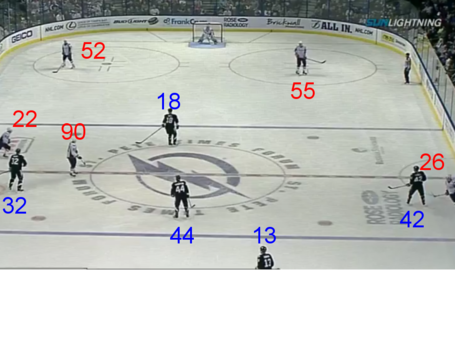Tales of Truth: Promoting Positive Hockey

(Photo: Jasper’s Rink)
Wednesday’s dreadful game between Tampa Bay and Philadelphia produced much hand-wringing, by both experts and fans alike, about how defensive strategies are ruining the game. Most attention focused on how to limit behaviour; very few talked about how to promote behaviour.
Here’s a simple proposal: borrow from rugby and use bonus points.
1995 is considered to be a revolutionary year in the history of rugby: South Africa won and hosted the world cup, the game became professional and it was the first year a competition tried a bonus point system. The 1995 New Zealand National Provincial Championship rewarded teams for scoring tries: win or lose, if you scored four tries or more, you received a point. Fans responded very positively, as it is accepted that scoring points through tries is far more exciting than winning through penalty kicks (for the uninitiated, tries are like touchdowns in football, while penalty kicks are like field goals). Watch video from before 1995 and you are taken by how much kicking is in the game and how little the ball gets passed or run about the field.
The effect on rugby was immediate. The southern hemisphere’s super 12 competition immediately adopted it and produced consistently high-scoring games. The best players and coaches in the world recognized that scoring tries were going to make a difference in the long run. It was a tiebreaking advantage which could be easily gained and was ever-present in their understanding of the moment. The NHL has incentivized regular time wins, but that’s only a half-measure.
Hockey should seek a similar concept. Reward teams for trying to win. Why do teams play the horribly defensive 1-3-1 system? Because there’s less risk in striving to not lose than there is in trying to outright win. If a team received an extra point for scoring 5 goals in a game, teams will seek different outcomes.
Human behaviour responds much better to incentives than it does to limitations. Create a limitation and we try to find the exception to it. Create an incentive and we seek to optimize it.
I’ll have more on this as the week carries on.
Recent articles from Patrick Johnston





